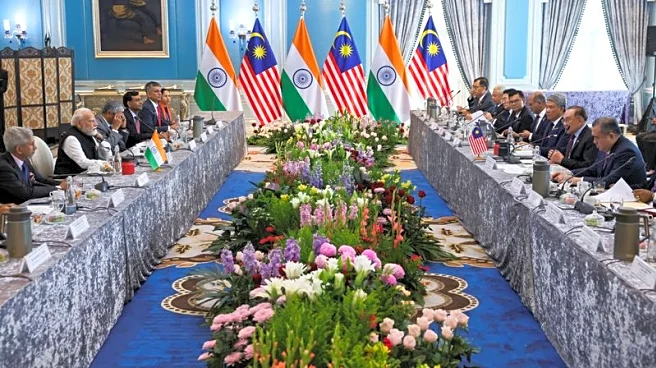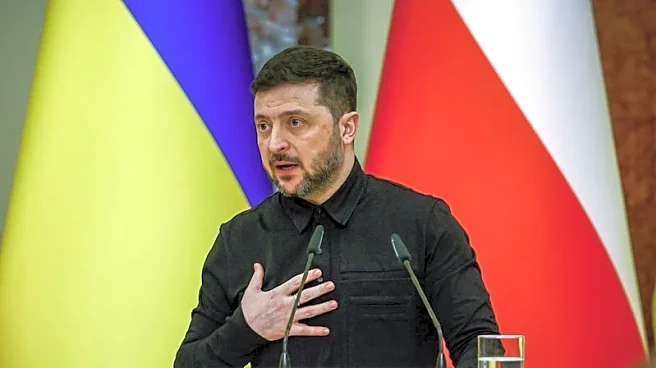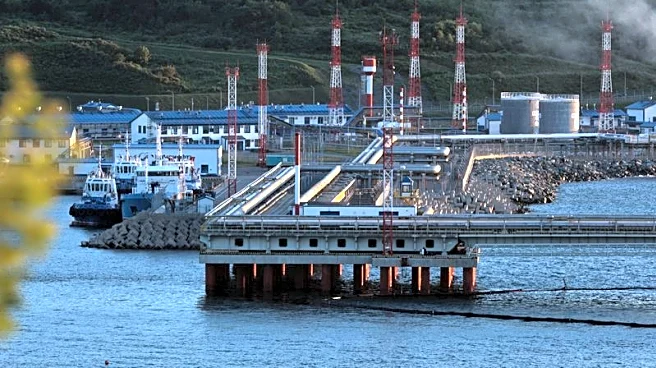What is the story about?
What's Happening?
The U.S. Senate has confirmed Brandon Williams, a former Representative, to a significant nuclear security position within the National Nuclear Security Administration (NNSA). This confirmation comes eight months after President Trump nominated Williams for the role. Williams, aged 58, will oversee the nation's nuclear arsenal as the administrator of the NNSA, becoming the seventh person to hold this position. Despite criticism from some nuclear weapons experts regarding his lack of experience, Williams was confirmed in a 51-47 party-line vote in the Republican-controlled Senate. His background includes six years as a submarine officer in the Navy, followed by a career in tech start-ups, investment banking, and operating a truffle farm. Williams replaces Jill Hruby, who served as administrator from July 2021 until earlier this year, bringing decades of experience as a scientist and engineer.
Why It's Important?
The confirmation of Brandon Williams to oversee the U.S. nuclear arsenal is significant due to the critical nature of the role in national security. The NNSA, a semi-autonomous agency within the Department of Energy, manages a $25 billion annual budget and employs over 65,000 individuals across various laboratories and plants. Williams' appointment reflects the ongoing political dynamics in the Senate, where Republicans have altered procedural rules to expedite the confirmation of nominees. This decision has sparked debate, with Democrats arguing that such changes could lead to the appointment of unqualified individuals. The broader impact of Williams' leadership will be closely watched, particularly in terms of how he manages the nation's nuclear stockpile and propulsion systems for the Navy.
What's Next?
With Williams now confirmed, he will begin his tenure overseeing the NNSA's operations, including the management of the U.S. nuclear weapons stockpile. His approach to leadership and decision-making will be scrutinized, especially given the concerns about his experience. The Senate's procedural changes may continue to influence future confirmations, potentially affecting the composition of key government positions. Stakeholders in national security and energy sectors will likely monitor Williams' actions closely, assessing their impact on U.S. nuclear policy and international relations.
Beyond the Headlines
The confirmation of Williams highlights broader issues regarding the qualifications required for high-level security positions. The shift in Senate rules to expedite confirmations raises questions about the balance between efficiency and thorough vetting processes. This development may prompt discussions on the criteria for appointing individuals to critical roles, especially those involving national security. Additionally, the political maneuvering involved in Williams' confirmation could influence future legislative strategies and the dynamics between political parties.
















